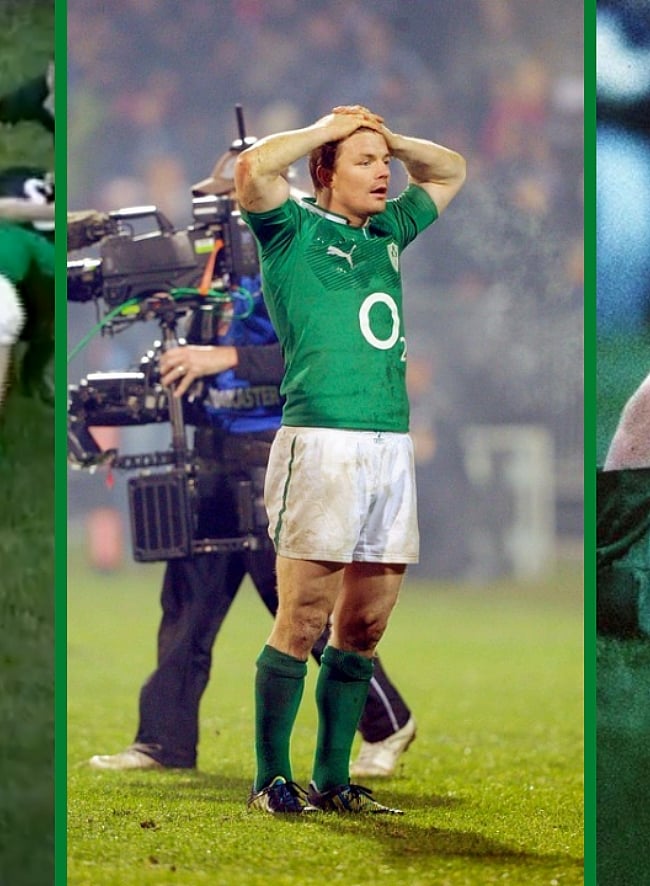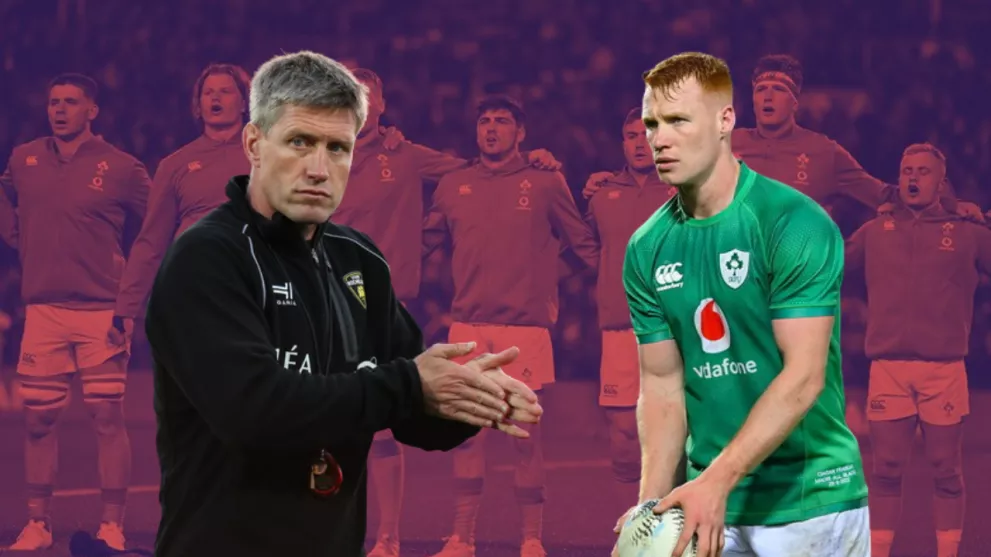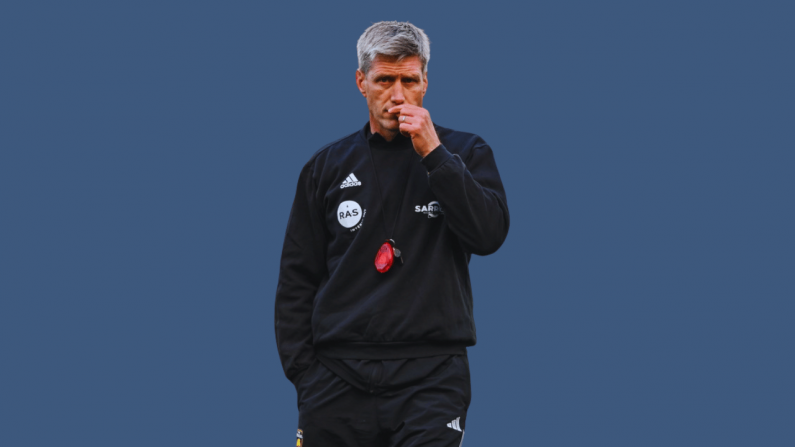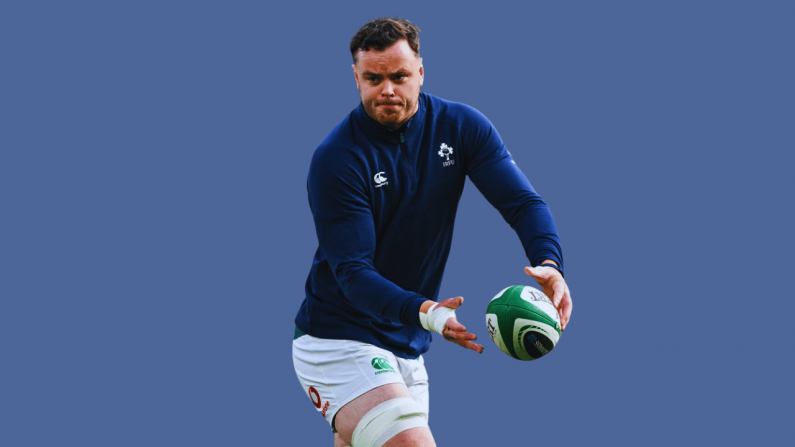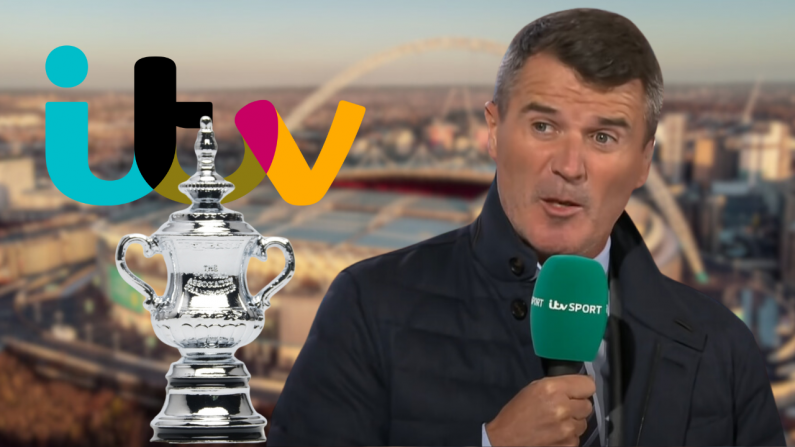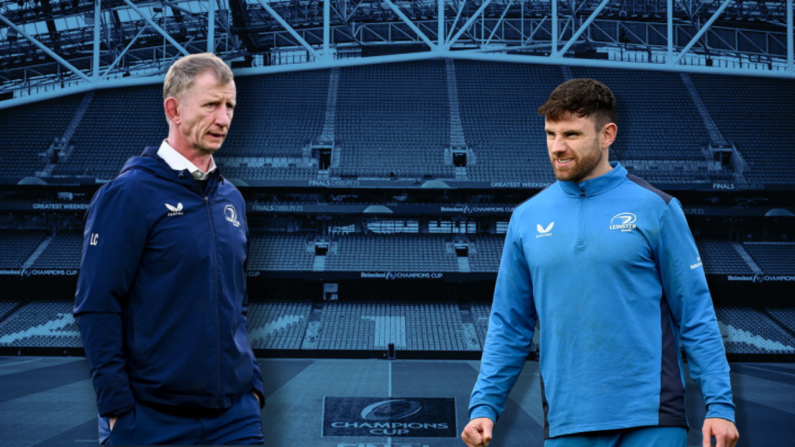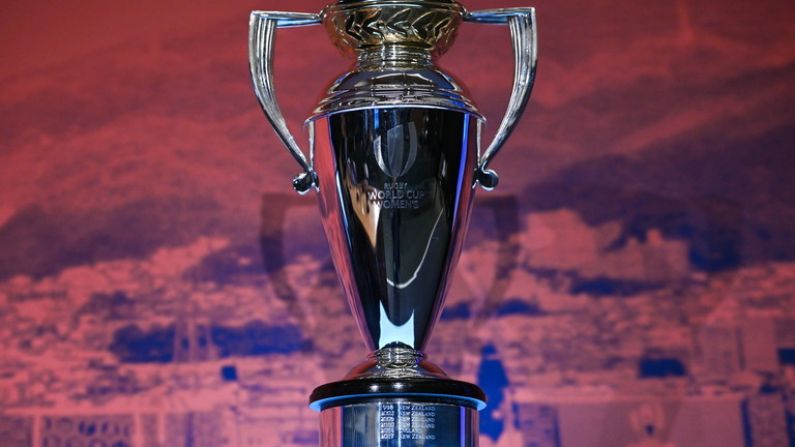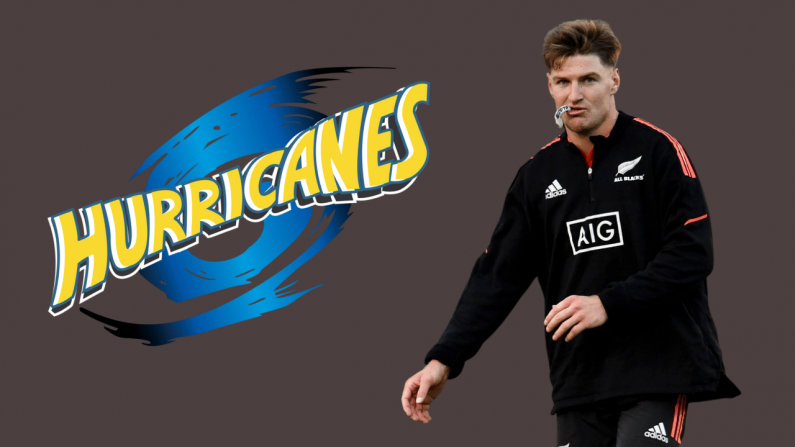Their opinion of us never changed during those years. They might have thrown a few compliments our way once in a while, but I don’t think they ever felt threatened by us. Why should they when Ireland have never beaten them? The only way to earn their respect is to beat them, and more than once.
Paul O’Connell, The Battle.
These words are O’Connell’s assessment of New Zealand attitudes towards the Irish rugby team, following the two test tour of 06’. Since then the Irish have beaten the All Blacks three times, and the respect and fear they have for Ireland has increased tenfold. But yet there still remains one of the holy grail achievements in rugby. Beating them on their own turf. Like one final horcrux waiting to be destroyed, relieving them of their immortality.
Tomorrow’s game presents a unique opportunity for Ireland. It is the first time they travel to New Zealand having already beaten them. It’s also an All Black side in transition, coming off the back of a Northern Tour that saw them lose to both Ireland and France. Their head coach Ian Foster is under intense scrutiny, but he does have somewhat of a trump card on Saturday. His team are playing in Eden Park, the ground in which they hold a 46 game winning streak that stretches back to 1994. Ireland are also coming to the end of an arduous season while the All Blacks are fresher.
Ireland’s form could also hamper the team in some ways as well. New Zealand will not underestimate them. And some of their tightest battles with Ireland on home turf have come against weaker squads, when they have not taken them seriously. Weaker Ireland sides than this one have a come close on a few occasions, from their very first tour to New Zealand in 1976 to their last one in 2012.
1976 - Athletic Park, Wellington
It was the national side’s first trip to New Zealand. Mike Gibson had been there in 71’ with the British and Irish Lions, and he would be there with them again a year later along with Phil Orr, Moss Keane, and Willie Duggan.
Ireland had finished fourth with one win in that year’s Five Nations Championship, and came into the match having won four of their six tour matches against regional teams. They were far from favourites but it was the amateur era and games were tighter. 11-3 was the final score, with Barry McGann kicking Ireland’s only points, and the great All Black centre Bruce Robertson scoring the game’s only try.
Looking at the tape it is clear just how much of a different game it was 46 years ago. Not least the four points awarded for a try and one armed throw-ins into non-lift lineouts. But the sheer amount of handling errors, and the lack of size of the players making it seem as if the pitch were 20 metres wider.
Ireland’s next game would be their first and only visit to Fiji, where they ran out 8-0 victors.
1992 - Carisbrook, Dunedin
The previous summer this team had lost two matches to Namibia. They had finished last in that year’s Five Nations having lost every match, and had not won a game in the competition the year before. If any side was going to face an All Black team with their guard down, this was it.
This team was capable of potential upsets, as they showed against a an all-time Aussie team at the 1991 World Cup. However, in the summer of 1992, Ciarán Fitzgerald’s side were missing 17 front-liners and numerous players who had played in that Australia game eight months previously. They were also forced to take 10 uncapped players on tour.
In the lead up to the test they had already been beaten 62-7 by Auckland and 58-24 by Manawatu. In Tom English’s incredible book No Borders, Irish prop Nick Popplewell describes the feeling before the game as thus;
I would say that the first Test performance came from sheer fright. People were telling us it would be 100-0, but we had a moment and the All Blacks didn’t take us too seriously and we could have beaten them.
To say they had a moment is an understatement. Tries from Jim Staples and Vinnie Cunningham had them leading 12-0 and 18-12 at various stages. And this against an All Black side boasting the likes of John Kirwan, Sean Fitzpatrick, Ian Jones, and Frank Bunce. But like we’ve seen so many times, the All Blacks conjured a way to win, and the final score was a 24-21 loss.
2002 - Carisbrook, Dunedin
One of the more forgotten tours to the land of the kiwis. But Ireland produced a performance which gave further proof that the dark ages of the 90’s would not be returning, and showed the promise of the new-era of O’Driscoll, O’Connell, O’Gara et al..
15-6 was the final score, an impressive feat keeping the game to within nine points, but even more noteworthy was holding the All Blacks to just 15 points.
The highlight of the game from either side was Keith Wood’s astounding touch finder from his own ten metre line, which in modern times would have been the ultimate forward's 50:22.
2006 - Waikato Stadium, Hamilton
Ireland's two-test tour to New Zealand came in the midst of one of the most memorable years for Irish rugby (before it came to a brutal end at the 2007 World Cup). They were becoming a genuine force on the world stage, and playing arguably the nicest rugby ever seen from an Irish team. To cap it off, the jerseys were spectacular and Neil Best was in his barnstorming pomp.
Although the second Test was closer in score at 27-17, the first match in Hamilton was the one that got away.
Despite going down to a Doug Howlett try within the first minute, Ireland struck back through a defence cutting line from O’Driscoll, and found themselves eight points ahead with just 22 minutes remaining. But natural order would take over as it always does, and the All Blacks won it 34-23. Ireland would also lose to 37-15 to Australia later on the tour.
O'Driscoll describes the bittersweetness of the games in his autobiography;
There’s a certain consolation from the brand of rugby we produced against the All Blacks. There is progress in the shift of attitude among us, the inner belief that we are good enough to win matches in the southern hemisphere. But at the end of another tour the bare stats have a disappointingly familiar look: played three, lost three.
2012 - Rugby League Park, Christchurch
Ireland had lost the first Test 42-10, and were coming towards the ugly end of the Deccie era. 20 years after the near-miss in Carisbrook, Ireland rocked up to Christchurch and were once again underestimated by the All Blacks. This time they went one better, but by that I mean the difference in the end was two rather than three. And once again the home side somehow found a way to win, 22-19, through a last-minute Dan Carter drop-goal.
This loss felt different however. There was an egregious late scrum penalty given against Ireland by referee Nigel Owens, a decision which swung the result. They also had further questions, questions which Johnny Sexton (one of the two remaining players from this tour along with Keith Earls) would outline in his book Becoming A Lion.
But should I have tried that long-range penalty when they were down a man, or put it into the corner? What was Nigel Owens up to, suddenly penalising our scrum when it had been on top all night? Finally, how come Dan Carter’s dodgy first drop-goal attempt flicked off Sean O’Brien’s fingertips on its way wide, giving the kiwis an attacking scrum they didn’t deserve? That was their escape hatch.


